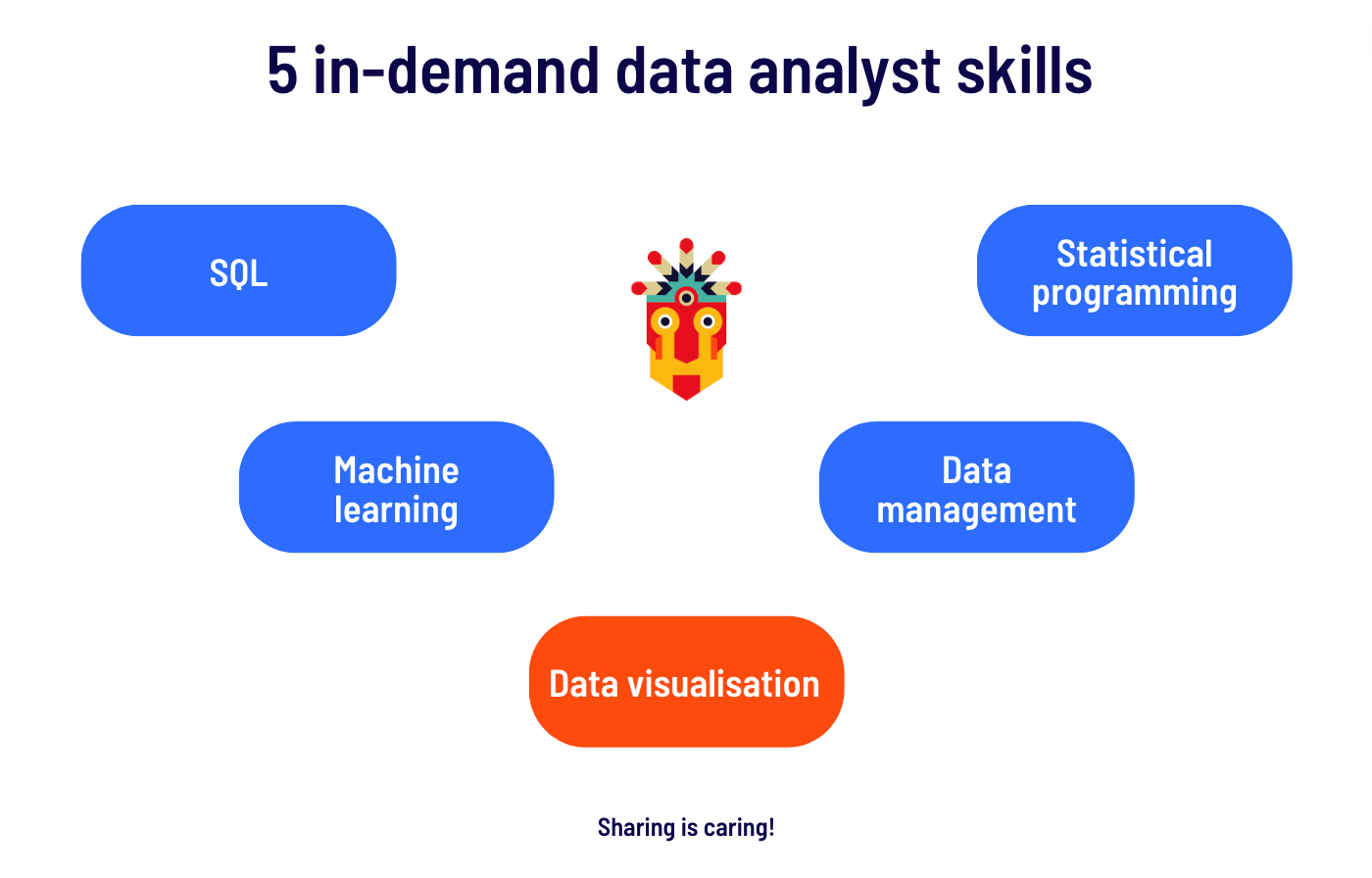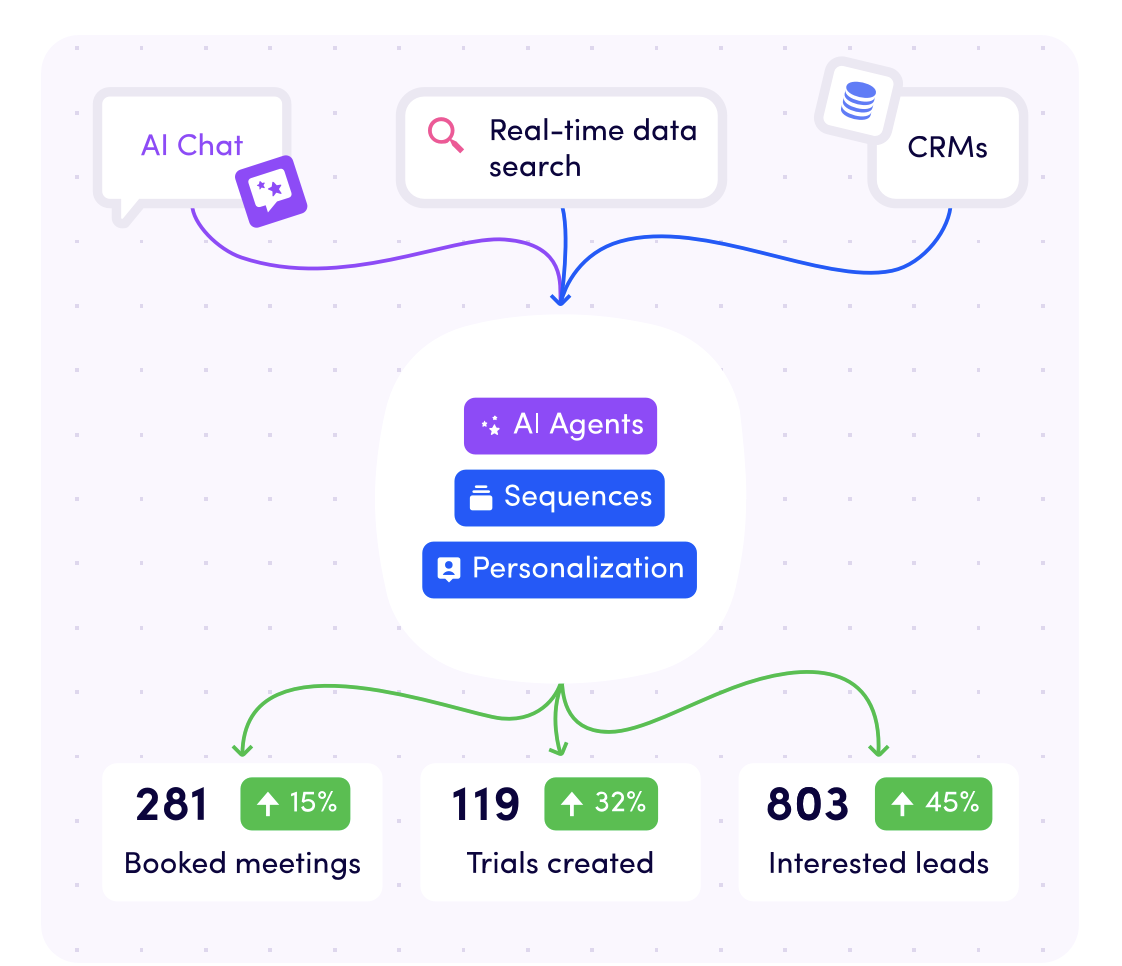8 Exciting Reasons Data Analytics Will Ignite Your Career In 2024

*Updated on August 5, 2024
Companies are crying out for data analysts! No, this is not hyperbole. Whilst the demand for skilled analysts is huge, the supply leaves something to be desired.
This means that even entry-level positions in data analytics are richly compensated as digital-age businesses seek to leverage consumer data to drive strategy, make investment decisions, assess risks and predict market changes.
Aside from the practical business applications, data analytics is a varied and exciting field with a long list of career opportunities and roles, you're sure to find an industry that matches your interests.
Let's go deeper into this topic!
TABLE OF CONTENT
- What is Data Analytics?
- 8 Reasons Data Analytics is the career for you
i. Data generation is at an all-time high
ii. Data Analysts are in demand
iii. The Salary and Progression are Excellent
iv. More Companies Are Adopting Data Analysis Technologies
v. You Can Get Started Easily
vi. You’ll become a key decision-maker
vii. Lots of opportunities for growth
viii. Chance to work with household names - Conclusion
- FAQs
What is data analytics?
Before we jump into why a career in data analytics is a great career choice, let's recap the definition:
Data analytics is the process of analysing raw data to create actionable insights that inform strategies and increase business intelligence.
In simpler terms, data analytics takes large sets of unorganised and apparently random data and organises (or “cleans”) it to establish patterns, drawing logical conclusions that can then be passed on to help make business data-driven decisions.
There are four types of data analysis that are used to answer business-related questions:
-
Descriptive - answering “what happened?”
-
Diagnostic - answering “why did this happen?”
-
Predictive - answering “What might happen in the future?”
-
Prescriptive - answering “What should we do next?”
These four types of data analysis are used to paint a picture of the wider story that data tells us and detail the next steps.
8 reasons data analytics is the career for you
1. Data generation is at an all-time high
Statista reports that by 2025, the annual revenue from data generation is set to reach $68 billion with 181 zettabytes of data being created.
Customer data has become the most valuable currency in the world.
From this data, businesses can uncover various insights, such as:
- Behavioural patterns of their customers
- The messages and campaigns that resonate with them
- The platforms that yield better results
- The demographics that respond positively, and much more
All of this information is collected effortlessly and on a large scale.
As a result, businesses need to interpret this data, which is why they need skilled data analysts.
Information is the oil of the 21st century, and analytics is the combustion engine. -Peter Sondergaard
2. Data analysts are in demand
The US Bureau of Labor Statistics predicts that the demand for data analytics jobs will grow by 23% between 2021 and 2031, much faster than the average of 5% for all other industries.
Further to this, a report conducted by Analytics Insight predicted job openings for more than 3 million data professionals last year.
In recent years, particularly since the pandemic, there has been an enormous increase in how data is gathered and analysed for business intelligence and decision-making.
As new digital technologies continue to emerge to support and improve business operations, data analysts are becoming increasingly valuable, offering excellent career progression and job security.
3. The salary and progression are excellent

With high demand comes high salaries! Because of the clear shortage of qualified professionals, companies are willing to offer top rates for individuals with data analysis skills and education.
The graphic above shows the average salary for an analyst role in the US sitting prettily at just under $75,000 per year, you'll also notice the entry-level figure being rather high at $53,000 per year.
As you gain experience and advance in your career, your salary will increase as well, offering some of the most competitive wages in the market (based on information from Indeed.com):
-
Junior Analyst: $53-58K
-
Data Analyst: $75K
-
Data Analytics Consultant: $77K
-
Senior Data Analyst: $97K
-
Data Analytics Manager: $89K
-
Insurance Claim Analyst: $51K
-
Healthcare Analyst: $63K
-
Marketing Analyst: $66K
-
Financial Analyst: $72K
-
Systems Analyst: $78K
-
Data Scientist: $123K
-
Machine Learning Engineer: $146K
-
Chief Data Officer: $179K
Check out this data analyst salary guide for different countries around the globe.
4. More companies are adopting data analysis technologies
New technology makes it much easier to handle complex and time-consuming tasks.
For large businesses, they often have vast and overwhelming amounts of data to manage.
These companies are eager to adopt technologies that align with their strategies because using analytics tools gives them a competitive advantage.
These stats from DataProt reflect this:
-
- The global adoption rate for business intelligence is 26%.
- 52% of software companies and 50% of finance companies use BI tools.
- Organisations leave 97% of the data they collect unused.
- The global business intelligence market was valued at $24 billion in 2021.
Almost every sector, from automotive to fashion, retail, and e-commerce, uses analytics to some degree, offering plenty of opportunities across various industries.
TIP
What is Business Intelligence?
Business intelligence is the use of data analytics, data mining, and other analytical techniques enabling them to identify opportunities and make data-driven decisions.
5. You can get started easily
The best place to start a career in data analytics is by taking an online course.
Here, you'll learn the basics of data, its applications, and programming tools like HadoopR.
The flexibility of online Data Analysis courses is one of their greatest advantages.
You can study in your free time or fit it around family and other commitments.
Most courses are self-paced and combine practical exercises with video-based learning, often taking just a few months to complete.
Acquiring knowledge in data analytics and earning a certification can significantly boost your chances of changing careers.
Unsure which course to take? We made a handy list of the best online data analytics courses that you can check out.
6. You’ll become a key decision maker
Data analytics serves as a vital asset for businesses, enabling the development of more precise and data-driven strategies, which in turn leads to improved outcomes and more informed decision-making.
As a critical element in this process, organisations and managers often turn to data scientists for direction on the next steps.
Data visualisation can be an invaluable tool in this endeavour.
Throughout your career in data science, you will have the chance to work with various departments and individuals, helping to provide actionable insights.

7. Lots of opportunities for growth
Due to the sheer number of industries adopting data management, you'll always have options for lateral and upward movement.
Marketing, business intelligence, healthcare and finance are a few examples of data-driven sectors but there are dozens more all reliant on data.
The technical aspect of data science means you'll always have a new area to explore and refine, from programming to advanced statistical analysis, growth opportunities are abundant.

8. Chance to work with household names
Generally speaking, the bigger the company, the bigger the reliance is on data scientists.
In terms of who's leading the charge for data analysis software, you can expect names like Microsoft and IBM at the forefront.
But when it comes to clients, some heavy hitters prove alluring to data analysts:
-
Bloomberg
-
Deloitte
-
Barclays
-
HSBC
-
Experian
-
Amazon
-
Google
-
Netflix
-
Hyundai
-
General Motors
-
JP Morgan Chase
-
BT
-
Apple
-
& many more
For an up-to-date list of available data analyst positions, head to Glassdoor.com.
5 in-demand data analyst skills
So now that we know some of the best reasons to pursue a career as a data analyst, let's look at the skills companies are actively seeking.
The following list should help point you in the right direction as to which skills are being valued more than others today.

1. SQL - also known as Structured Query Language, is the standard way that data analysts communicate with databases and is used to clean, organise, extract and process data sets.
SQL is the most requested skill among employers and is foundational to data analytics making this a sensible place to start your learning.
2. Statistical programming - open-source programs such as Python and R allow fluent users to write computing language to clean, analyse and visualise data sets.
Both are considered relatively easy to learn for beginners and offer very similar capabilities although it's argued that Python is preferred for engineering-focused environments.
3. Machine learning - a subset of artificial intelligence (AI), machine learning creates more accurate predictions over time with the more data it processes.
The self-learning algorithms have wide implications in business as they can predict trends based on historical contexts, especially in fields such as medicine for diagnosis.
4. Data management - the practice of collecting, organising and storing data in an efficient, safe and compliant manner.
There are specific roles for data management such as data architects and software engineers but data analysts at any level can be expected to handle data in some form.
5. Data visualisation - using visual elements like graphs, charts and maps to convey patterns and make sense of data for teams and organisations. One of the leading software for data visualisation is Tableau, which you can find more on here.
There's a lot to like about a career in data
Varied, challenging, well-paid and with plenty of opportunity for growth and progression - there's a lot to like about a career in data analytics.
The skills mentioned above are great places to start and get a feel for the type of work you'll be doing as an analyst.
Ready to start your journey as a Data Analyst?
We have a great course for you!
Become Certified in Data Fundamentals!
Help drive business strategy as a key decision-maker through data-driven insights that define real action.
Our comprehensive Data Fundamentals course will equip you with the analytics skills and strategies needed to improve your performance and future-proof your career.
7 modules | 75 lessons | 7 tests | 7 exercises
- Module 1: Data literacy
- Module 2 - Analytics
- Module 3 - Experimentation
- Module 4 - Advanced analytics
- Module 5 - Data visualisation
-
Module 6 - The skills of data teams
-
Module 7 - Data Projects
Learning with Growth Tribe couldn’t be easier.
All of our courses are designed to be flexible for the learner with self-paced content so you can manage your time and learning to suit your lifestyle best.
Join a community of over 35,000 certified alumni who share a passion for growing their skills and positively impacting their careers.
FAQs
Is data analyst a good career?
Yes, data analysis is a promising career with a strong job outlook. The average annual salary for an analyst in the United States is just under $75,000. The demand skills for data analysts is growing rapidly, with a projected 23 per cent increase in job opportunities from 2021 to 2031, significantly higher than the average 5 per cent growth rate across other industries. Major tech companies like Amazon, Facebook, and Google are actively seeking professionals with strong analytical skills. This career offers great potential for growth and development in a wide variety of industries.
How much do data analysts make?
Salaries for data analysts can vary based on experience and job title:
- Junior Data Analyst: $53,000 - $58,000
- Data Analyst: $75,000
- Data Analytics Consultant: $77,000
- Senior Data Analyst: $97,000
- Data Analytics Manager: $89,000
These figures reflect the competitive salaries in the field, highlighting the lucrative nature of a career in data analytics.
Is data analyst an IT job?
Data analysis can be considered partly an IT job, as it involves using analytical tools and technical skills to process data. However, it also requires a strong business understanding to extract meaningful insights and make informed decisions. Data analysts often work across a variety of industries, collaborating with business analysts and other stakeholders to drive strategic decisions.
Data Analyst vs. Data Scientist
While both data analysts and data scientists work with data, their roles differ.
-
Data Analysts: Focus on interpreting and visualising data to provide insights for business decisions. They typically use tools like SQL, Excel, and data visualisation software.
-
Data Scientists: Develop and test complex statistical models and algorithms. They often use programming languages such as Python or R, along with machine learning techniques, to identify patterns and make predictions.
What qualifications do you need to become a data analyst?
To become a successful data analyst, a degree in mathematics, statistics, computer science, or a related field is often required. Many professionals also pursue specialised analytics programs or certificates to gain hands-on skills in data analysis tools. Experience through internships or practical experience in data-related projects can also be crucial. Communication skills and the ability to present data insights clearly to non-technical stakeholders are important transferable skills in this field.
What industries hire data analysts?
Data analysts are in demand across a wide range of industries. They play a crucial role in sectors such as finance, healthcare, marketing, and technology. Financial institutions, tech companies, healthcare providers, and market research firms are just a few examples of employers who seek skilled data analysts to help them make data-driven decisions. The analyst job titles may vary, including roles like healthcare analyst, market research analyst, and operations analyst, among others.
Categories
- Business & Innovation (83)
- Growth & Marketing (72)
- Artificial Intelligence (53)
- Data & Analytics (16)
- Case studies (10)
- Project Management (10)
Related articles
Learn more about data & analytics


Become a data hero and build a data-driven organisation. Learn how business analytics can build the strategies that help your business grow.
View certificateLearn more about data & analytics


Become a data hero and build a data-driven organisation. Learn how business analytics can build the strategies that help your business grow.
View certificateLatest articles
AI in Finance: Why You Need It Now
Imagine a world where loans are approved in seconds. Sounds...
ChatGPT Search Unveiled: Should You Make The Switch Now?
Picture this: You’re no longer just “searching” the web—you’re...
Shadow AI Explained: How to Harness Hidden AI Without the Risks
Picture this: your team is under pressure to deliver results—fast....
The 33 best AI tools for commercial teams
The tools are split into 2 categories The best AI tools for your...


















